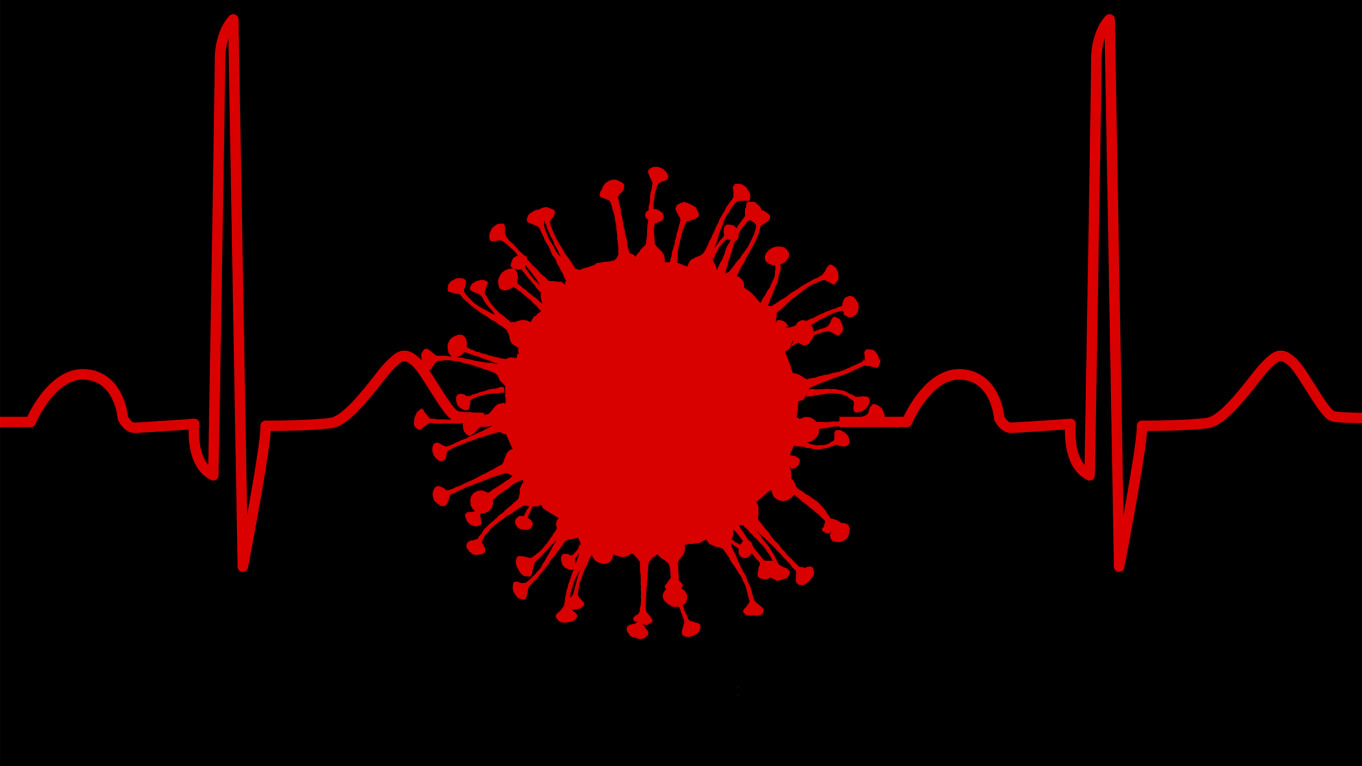
Two new studies show some coronavirus survivors suffer long-lasting cardiac injury, possibly from the virus invading the heart.
Two studies published Monday provide the strongest evidence yet that some patients who survive the respiratory ravages of COVID-19 may suffer long-lasting heart problems—the latest indication that the fallout from the pandemic goes well beyond the death toll.
Experts who spoke to The Daily Beast said the twin reports published by the Journal of the American Medical Association should serve as a “wake-up call” to patients and physicians who think the new coronavirus is limited to the lungs.
“These two studies together are telling us that beyond the COVID-19 pneumonia and all of this severe lung damage and injury that can occur, that there is injury going on in a proportion of patients that may cause lasting heart damage,” said Gregg Fonarow, professor of cardiovascular medicine and science at University of California at Los Angeles, who wrote an op-ed about the research for JAMA.
In one of the new studies, scientists at the University Hospital Frankfurt found through cardiac imaging that patients recovering from COVID-19 continued to have problems with their cardiovascular system weeks and even months after their diagnosis. Out of 100 German patients, the study found that more than three-quarters—with a median age of 49—displayed signs of cardiac abnormalities. And nearly two-thirds had ongoing heart muscle inflammation. Furthermore, neither their history of hospitalization nor any underlying heart conditions appeared to be a factor.
“To me that’s concerning because it means you can recover from COVID and have a potentially smoldering heart sensitivity,” Eduardo Marban, executive director of the Smidt Heart Institute at Cedars-Sinai, told The Daily Beast.
“There is potentially more than meets the eye with patients we think are doing quite well,” said Marban, who was not involved with the research published by JAMA.
The second study, conducted by a team of German physicians, focused on the cause of the inflammation and looked at the autopsies of 39 patients whose median age was 85. The official cause of death for the majority of the patients, 35, was pneumonia brought on by COVID-19. The paper found that in nearly two-thirds of cases, the virus had traveled directly to the tissue surrounding the heart muscle cells and infiltrated it. In a few instances, the virus was found to be actively replicating itself there.
“These patients clearly have lung involvement, extensive lung involvement, clinically have died of pneumonia,” Fonarow said. “But there is evidence in these patients of significant injury of the heart. And that injury, in many of these cases, was not a heart attack… but appeared to be actual evidence of infection, viral active infection.
“That damage then may have consequences that contribute to the severity of an individual’s illness.”
Jeff, a 63-year-old New Jersey native who did not want his last name used, experienced the effects of the virus on his own heart. He said he had a presumed COVID infection in early March and then developed leg swelling that his doctor worried could be a sign of heart failure.
Although he had a clean medical history, Jeff was admitted to a hospital and diagnosed with pneumonia and an irregular heartbeat known as atrial fibrillation. Months later, he can still barely walk half a mile without hitting the point of exhaustion. He faces two more heart procedures before he has a chance at moving past the virus’ effects.
“People fixate on the death rate, and I’m like, ‘Well I didn’t die, but my whole life is different,’” he said.
Red Sox pitcher Eduardo Rodriguez was infected with the coronavirus earlier this summer but was cleared to return to the team after testing negative. However, he was quickly sidelined and revealed he is suffering from myocarditis, or inflammation of the heart, as a result of the virus.
Doctors knew that a feature of COVID-19 was cardiac injury and that it was expressed in many deaths. They also knew that existing heart patients were at heightened risk of severe complications or death. But as Fornarow wrote in his op-ed, the new studies add another layer of understanding about the effects on the heart—and how long they might last, even in those who never had cardiac issues before.
“We see the plot thickening and we are inclined to raise a new and very evident concern that cardiomyopathy and heart failure related to COVID-19 may potentially evolve as the natural history of this infection becomes clearer,” he wrote.
Sanjum Sethi, an interventional vascular physician at Columbia University Medical Center, says the autopsy study could offer a window into a case that’s been bothering him for months. Sethi was called in to help with a COVID-19 patient who was presenting with symptoms of a heart attack, and soon after died. But an autopsy did not show the blood clot typically associated with cardiac arrest.
“We’ve been running special tests for the past month to test if there’s direct virus invasion responsible,” he said. “What we didn’t know is, is this a general inflammation that’s happening because of the host, or is the virus actually getting in there?”
For Marban, similar unanswered questions continue to linger. About a quarter of all admitted patients in New York hospitals have shown biomarker elevation, which signifies heart damage, but few have exhibited extreme cardiac events like heart attacks or arrhythmias. He called it a medical disconnect.
“The cardiac biomarker elevations are high, but very few patients get sick in the heart, so to me this has been all smoke and no fire,” he said. “But now, two to three months out, patients could be exhibiting significant abnormalities… It means that there’s something going on long-term that we didn’t suspect clinically.”
Experts caution that the results of the two studies are just the beginning, and more research is needed to replicate the findings and further understand the links between COVID-19 and the heart. But each new study could affect outcomes for patients by potentially offering evidence that anti-inflammatory medicines and blood thinners are beneficial to coronavirus patients.
“The major findings are going to have the impact of fostering additional research,” said Fonarow. “These studies will be important, I think, to inform clinicians to potentially look further. Whereas they may have previously thought, you know, we just look at whether there’s any residual lung damage and stop there.”


